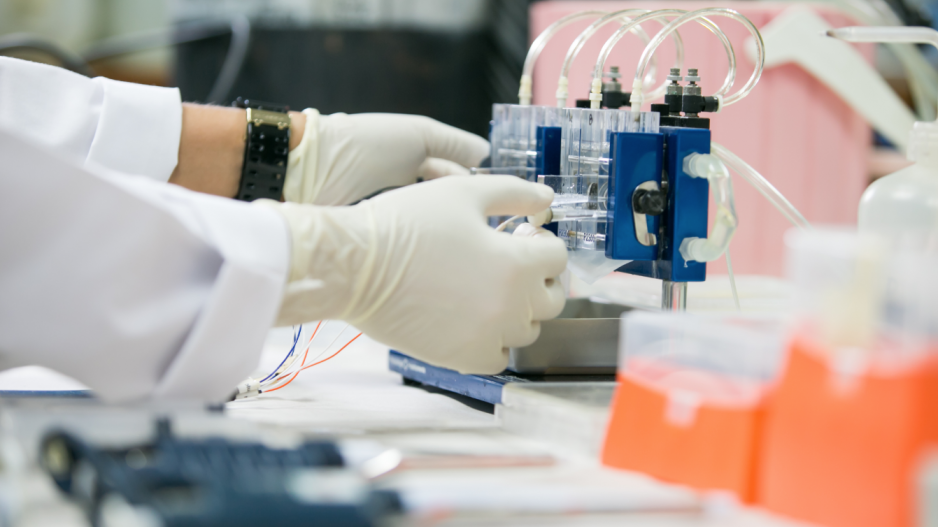For years, the founders of Primary Peptides have been investing “considerable funds” to develop a treatment for stroke patients, according to Max Cynader.
But the former head of the University of British Columbia’s (UBC) Centre for Brain Health says that money is a drop in the bucket compared to what his company expects to see now that it has entered a licensing agreement with a Chinese pharmaceutical giant.
Beijing’s Yabao Pharmaceutical announced September 15 it is partnering with Primary Peptides, a UBC spinoff, to bring the B.C. company’s medication across the Pacific.
“And now they’re going to be spending probably $40 million in China in the next 18 to 24 months to bring our compound, which they will get a share of, into Phase 1 and then Phase 2 clinical trials,” said Cynader, a neuroscientist and recipient of the Order of Canada.
Primary Peptides’ three founding scientists, all UBC faculty members, have developed proprietary technologies that uncover critical locations in human cells in which pairs of proteins interact in ways that can lead to serious health problems. The company is then able to treat many problems ranging from strokes to obesity by targeting those regions with peptides that block protein interactions.
“Our [business] model is to partner with other companies who will basically lead the clinical trial process,” Cynader said.
The key, he said, is that the clinical trials will be done to the standard of the U.S. Food and Drug Administration (FDA). Once the medication gets the FDA’s stamp of approval, it will be accepted across the world even if the clinical trials are conducted overseas.
The arrangement with Yabao pertains specifically to the stroke treatments, but Primary Peptides also has about a half-dozen other peptides in development that could treat Parkinson’s disease or heart attacks. Primary Peptides has been in talks with other companies to get those treatments into clinical trials, too.
“[Yabao has] been good at bringing drugs forward. They haven’t been as good at developing their own drugs,” Cynader said, adding that Primary Peptides’ ability to develop drugs and Yabao’s expertise in clinical trials makes for “a marriage made in heaven.”
Even with China’s slowing economy, Primary Peptides isn’t the only Vancouver-based life sciences company entering into licensing agreements with Chinese firms.
In late August, Cardiome Pharma Corp. (TSX:COM) announced it would license a cardiovascular medication to China’s Eddingpharm after signing a similar agreement a year prior for another medication.
Eddingpharm provided Cardiome with an upfront payment of $1 million in 2014, and the Vancouver firm is eligible to receive milestone payments of $3 million.
But Carolyn Cross, CEO of Vancouver’s Ondine Biomedical, said she remains wary about establishing partnerships in China.
Instead, Ondine has been exploring partnerships in South America, where Cross said there are more cultural similarities when it comes to both business and legal matters.
“Whereas in Asia, a lot of our technologies just get stolen,” said the CEO, who visited Brazil on a trade mission sponsored by Ottawa this past summer.
“Whether it’s corruption or theft – out-and-out theft – Canadian companies just don’t have the money to police or monitor what’s going on there.”
Cynader, meanwhile, said U.S. law, not Chinese, governs all of the contracts signed with Yabao.
“You always have to be worried about when you enter into a partnership,” he said.
“We’re doing the exact same kind of legal agreement that would be done if we were partnering with Pfizer or Merck.”




